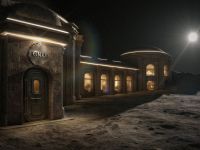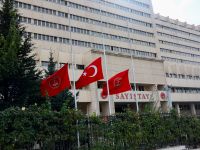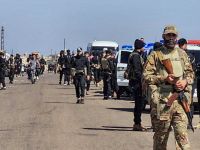Recent violence has further tarnished Lebanon’s global image, compelling Phoenicia Hotel’s communication’s team to launch an online 3-D virtual reality tour that aims to break down stereotypes of the country.
The tour is titled See Lebanon For Yourself, and features images of Lebanon’s most striking sites and landscape. It showcases the Sidon Souk, Jeita Grotto, and the Baalbek Roman Temples among many other wonderful areas.
“Our hope with this campaign is to challenge the way major media outlets portray Lebanon,” said Modi Madi, Phoenicia’s public relation’s and communication’s manager. “We wanted to give Lebanon more exposure. We wanted to show the nice image of Lebanon.”
The Virtual Reality tour was supposed to launch in 2016, but recent attacks on Lebanese soil compelled Phoenicia’s marketing team to release the tour as soon as possible. This came especially after Daesh (ISIS) claimed responsibility for the twin suicide blasts that killed 46 civilians in the Beirut southern suburb of Burj al-Barajneh on Nov. 12. After the attack, Madi said airline sales and hotel reservations dropped considerably.
The string of coordinated Daesh attacks that followed in Paris on Nov. 13 also hurt the tourism sector in much of the Levant.
Some 130 people were killed that day while 360 more were injured, further dissuading foreigners from visiting the region.
“After the attacks happened, we didn’t care so much about promoting Phoenicia anymore. It’s true that it did affect the tourism industry but we thought it was more necessary to promote Lebanon,” Madi told The Daily Star. “The media reports can be really damaging and misleading sometimes. It’s hard to challenge that popular image, but we have to try.”
Almost immediately after the launch of the virtual reality tour, bloggers from across the region began to take notice.
The Lebanese diaspora were also attracted by the familiar sights and sounds of their homeland, a trend that has offered much encouragement to people like Madi.
Madi said that Lebanese nationals should be very attentive to changing popular impressions of their homeland. According to her, many of her peers are unaware of the damage they commit when they reproduce negative stereotypes of their own country.
“The message we are trying to send to tourists is the true one. We are telling them that Lebanon is a lovely place and not to be scared,” Madi said. “But changing popular impressions of Lebanon has to start with us. We [Lebanese nationals] are also guilty of painting a bad image of our country.”
Lebanon’s tourism economy was booming before the break of the Syrian war. A report by BankMed concluded that in 2010 the sector’s contribution to the country’s overall GDP increased by 21.7 percent.
The industry also benefited mightily in 2012 from wealthier displaced Syrians who first began fleeing their homeland.
And while political and security tension has ultimately been responsible for the sector’s considerable decline in Lebanon, the virtual reality tour is sure to entice the likes of more travelers from Europe and North America to visit. However, they alone won’t be able to revive Lebanon’s struggling economy since nationals from fellow Arab states have constituted the largest decline of visitors in recent years.
“We just want to make people aware of Lebanon from a different perspective,” Madi said. “They have to see it in 3-D and watch it on their phones because that’s how they can have the best experience of the virtual tour.”
Those who would like to experience
the virtual reality tour can visit:









